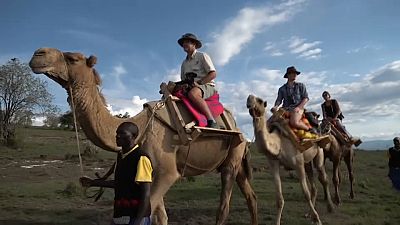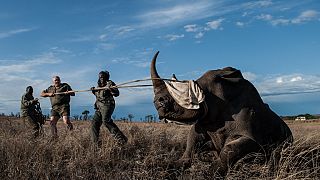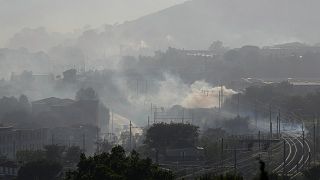Kenya
Camels are the latest mode of transport carrying tourists across Kenya's Soysambu Reserve.
The animals provide a very different experience from the all-terrain vehicles typically associated with safaris.
"I choose this method of eco-tourism over other eco-tourism options like electric vehicles, electric bikes, because even if an electric vehicle is good and we are moving forward and we are trying to get away from diesel and burning engines, but it's still a vehicle, and so you are still leaving a footprint, you are still leaving tracks" said tourist Adrien Allan.
Using camels also means the tour can get closer to more elusive creatures, such giraffes grazing in the undergrowth.
The owner of Bobong Camels, Amanda Perrett, explains why camels offer a better alternative compared to vehicles.
"The camel is very good at eating invasive species which helps the environment. And they do not leave a footprint when you walk with them and they carry everything that you need on your trip. They don't drink too much water so they can go up to five days without needing to drink", said the safari entrepreneur.
For conservationists, eco-tourism is the best way to preserve nature and resources for future generations.
"This brings nature closer to us and us closer to nature. The more close you nature the more you understand it, the more you will like it and the less that you'll not (be likely) to destroy it, the more you realise that pollution is harming the environment" explains conservationist Henry Ole Sanoi.
As customers become more environmentally-conscious, more and more companies want to offer holidays that don't harm the natural world.












02:38
Natural harmony of Uganda's 'Ghost Island' under threat from international tourism
02:05
In Zimbabwe, metal scrap collecting is reducing environmental pollution
02:22
Cameroonian marine conservationists trained as scientific divers
00:50
New documentary shines light on plight of pangolins, one of the world's most trafficked mamals
01:06
Experts warn of an increase in Glacier-related risks from climate change
00:10
Elephant spotted in Senegalese park gives hope to conservationists